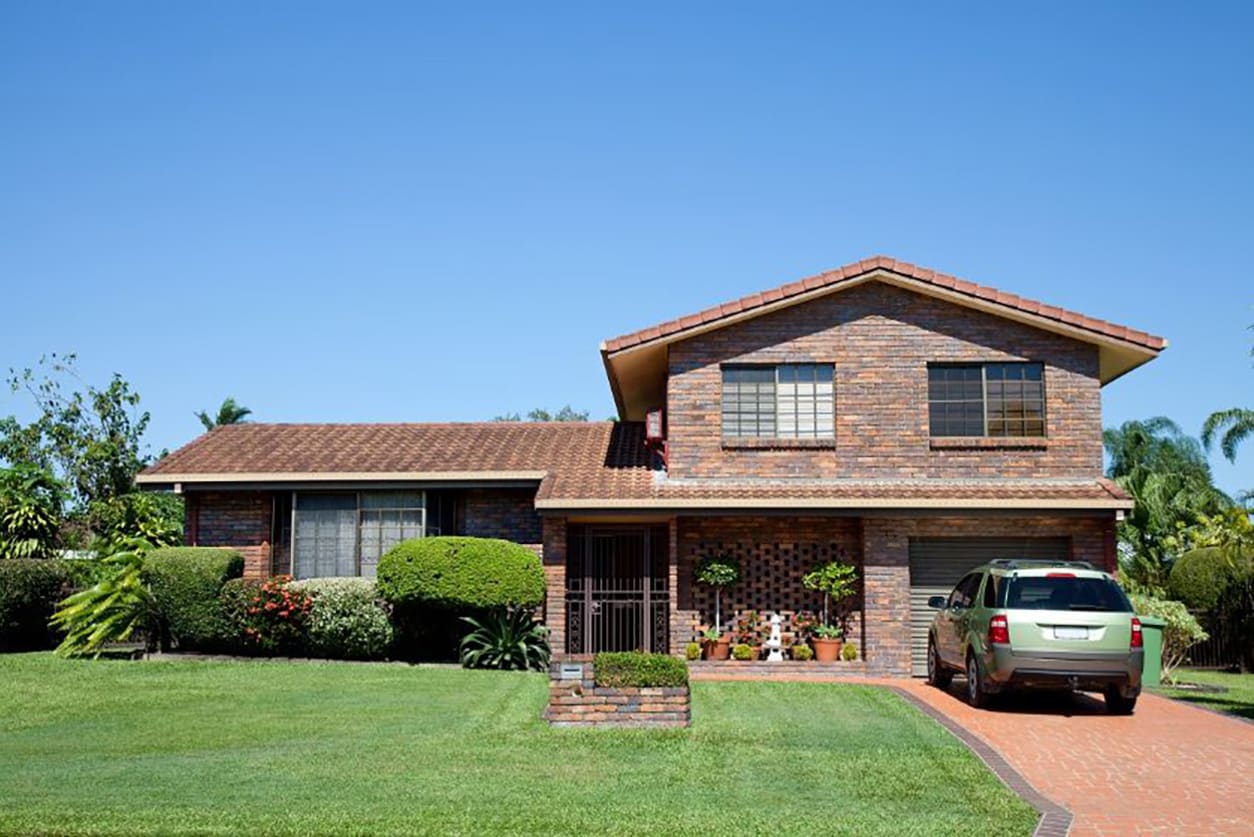Budgeting Tips for New Homeowners
5 Min Read | Last updated: October 31, 2024

This article contains general information and is not intended to provide information that is specific to American Express products and services. Similar products and services offered by different companies will have different features and you should always read about product details before acquiring any financial product.
An accurate home budget can help you plan for the true cost of home ownership.
At-A-Glance
- Creating a realistic home budget can help you enjoy your new home with less financial stress.
- Costs such as maintenance, utilities, and landscaping can add up to as much as your mortgage payments, or even more.
Buying your first home is a big achievement — and probably one of the largest investments you’ll ever make. Amid the excitement of finding your dream home, it’s important to remember that home ownership also means handling a variety of new expenses. You may think you’re simply swapping a monthly mortgage payment for your old rent check. But you’ll also manage a variety of smaller additional costs that can add up to equal — or even exceed — that mortgage payment.
Creating a realistic home budget can help you enjoy your new home with less financial stress. If you’re planning to buy but haven’t yet taken the plunge, a home budget may help you zero in on a house you can afford — and figure out how much you should save before you can buy. If you’ve already bought your new house, a home budget will help you plan for the expenses you will likely encounter in the coming years. You can do that by creating a fund to cover ongoing expenses and contributing a set amount every month.
Here are some of the biggest costs to consider for your new-home budget, which are explained below:
- Mortgage payments
- Property taxes and home insurance
- Utilities
- Homeowners association (HOA) dues
- Maintenance/Repairs
- Landscaping
- Remodeling
Mortgage Payments: The Predictable Part of Your Home Budget
This is likely to be your biggest single monthly cost. But it’s also one of the easiest to budget for, because you’ll generally know the size of the monthly payment before you buy your house, and because your payment will remain the same every month if you have a fixed interest rate.
Mortgage payments also offer a significant financial bonus that you don’t get when you’re paying rent: Mortgage interest is tax deductible, on up to the first $750,000 of your mortgage if you’re a single filer or married filing jointly (up to $375,000 if you’re married filing separately). So, the interest you pay may reduce your taxable income — which could shrink your annual income tax bill. Keep in mind that you can only deduct interest by meeting certain conditions, including itemizing your deductions.1
Property Taxes and Home Insurance Costs Tend to Rise
Property tax payments may be a less predictable component of your home budget than your mortgage. Your property tax bill may increase for various reasons. For example, it may rise if there’s a change in local laws, or a jump in home values in your area. But it all depends on where you live: Some states have imposed caps on annual increases or your total tax payment.2
Like mortgage interest, property tax payments are tax deductible, which may help to offset some of the cost. The property tax deduction is capped at $10,000, whether you’re a single filer or married filing jointly. The cap is $5,000 if you’re married filing separately. Again, you must itemize deductions.3
Think About All Utilities
As a homeowner, you are responsible for all utilities. If you were previously renting, you may have been paying some of these, like electricity bills — but you probably didn’t have to budget for all of them. The utilities included in your home budget may include:
- Water
- Electricity, gas, and heating oil
- Garbage collection
- Phone, internet, and cable service
Some of these utility costs, like garbage collection or monthly cable subscriptions, may be predictable. Others are harder to estimate in advance. For example, if you use gas to heat your home in winter and electricity to run air conditioning in summer, you can expect big monthly variations in your electricity and gas bills. You may be able to do some preliminary budgeting using information about average residential usage from your city or your local utility company, or you might even get useful information from your home’s previous owner.
Some utility companies offer budget billing, letting you opt to pay an estimated monthly bill that spreads your expected annual costs into 12 monthly payments, with a periodic “true-up.” That approach is great for home budgeting purposes.4
Expect Homeowners Association Fees to Increase
If you live in a condo, townhouse, or a single-family home in some planned communities, your home budget may include monthly homeowners’ association (HOA) fees. The fees generally cover everyday maintenance of shared facilities and may also be used for other purposes.
It’s not uncommon for homeowners to have to pony up substantial additional one-time payments if the HOA doesn’t have enough financial reserves to cover unforeseen major problems, like a flood in a shared underground parking structure.5
Don’t Underestimate Maintenance
New homeowners might underestimate the cost of maintenance and repairs. Besides everyday repairs and replacement of worn-out items, you should also budget for major remodeling projects. Here are some factors to keep in mind:
- Your home’s age. Older houses generally cost more to maintain.
- The climate. You may have to repaint the exterior more frequently if you live in a region with severe weather conditions.
- Where you live. Repairs generally cost more in high-priced cities.
- Your home’s condition. Your costs may be higher if the previous owner didn’t keep up with repairs.
- Whether you can do any of the work yourself. You may save money—but only if you do the job right!
Appliances and furnishings generally don’t last forever, so think about their age when planning your home maintenance budget. For example, carpets typically wear out within 10 years, while conventional water heaters usually last six to 12 years, according to the International Association of Certified Home Inspectors.6 If you want your home budget to reflect how professional building managers spend, you’ll want to divide the expected cost of replacing those things by the number of months they should last, and contribute that to a savings fund each month. The accompanying chart can help you get started.
Life Expectancy of the Items in your Home6
| Item | Expected Life (years) |
|---|---|
| Refrigerator | 9 to 13 |
| Gas range | 15 to 17 |
| Microwave oven | 9 |
| Central air conditioner | 7 to 15 |
| Furnace | 15 to 25 |
| Vinyl floors | 25 |
| Wood floors | 100+ |
| Asphalt roof shingles | 20 |
| Vinyl/fiberglass windows | 20 to 40 |
Factor Landscaping Costs into Your Home Budget
If your home has a landscaped backyard, or even just a grassy patch and couple of trees, you’ll incur some landscaping or gardening costs. If you don’t plan to do all the work yourself, it’s worth factoring installation and regular maintenance costs into your home budget. Even hiring a company to mow the lawn may be costly.
Budget Separately for Remodeling Projects
Major remodeling and renovation projects can cost thousands of dollars. If you’re planning a big project and you don’t have enough saved to pay for it, it may make sense to set up and contribute to a separate fund until you’ve accumulated enough cash. Alternatively, you may consider financing the project by refinancing your mortgage or getting a home equity line of credit (HELOC). For more about HELOCs, read “How Do HELOCs Work?”
The Takeaway
Buying your first home is one of life’s major achievements. But making home ownership a highly successful and satisfying experience also depends on effectively managing the expenses you’ll incur after you’ve moved in. A realistic home budget can help you maximize the enjoyment of your new home and minimize financial stress.
1 “Publication 936 (2023), Home Mortgage Interest Deduction,” Internal Revenue Service
2 “Close to Home: A Short Guide to Property Taxes,” Tax Foundation
3 “Topic no. 503, Deductible taxes,” Internal Revenue Service
4 “Should You Use Budget Billing for Your Utilities?,” U.S. News
5 “Your homeowners policy may address your condo special assessment. But don’t expect coverage in all cases.,” The Washington Post
6 “InterNACHI's Standard Estimated Life Expectancy Chart for Homes,” Inter-national Association of Certified Home Inspectors
SHARE
Related Articles
First Time Homebuyer Checklist
Buying your first home can seem like a big project, but this financial checklist can help you manage it — and increase your confidence in the process.
How to Make a Monthly Budget in 4 Steps
Take control of your personal finances: Here are some expert budget-building tips and a 4-step guide to help you achieve your budgeting goals.
How to Manage Your Money Better
Learn how to manage your money and finances for the future with these smart money management tips.
The material made available for you on this website, Credit Intel, is for informational purposes only and intended for U.S. residents and is not intended to provide legal, tax or financial advice. If you have questions, please consult your own professional legal, tax and financial advisors.










